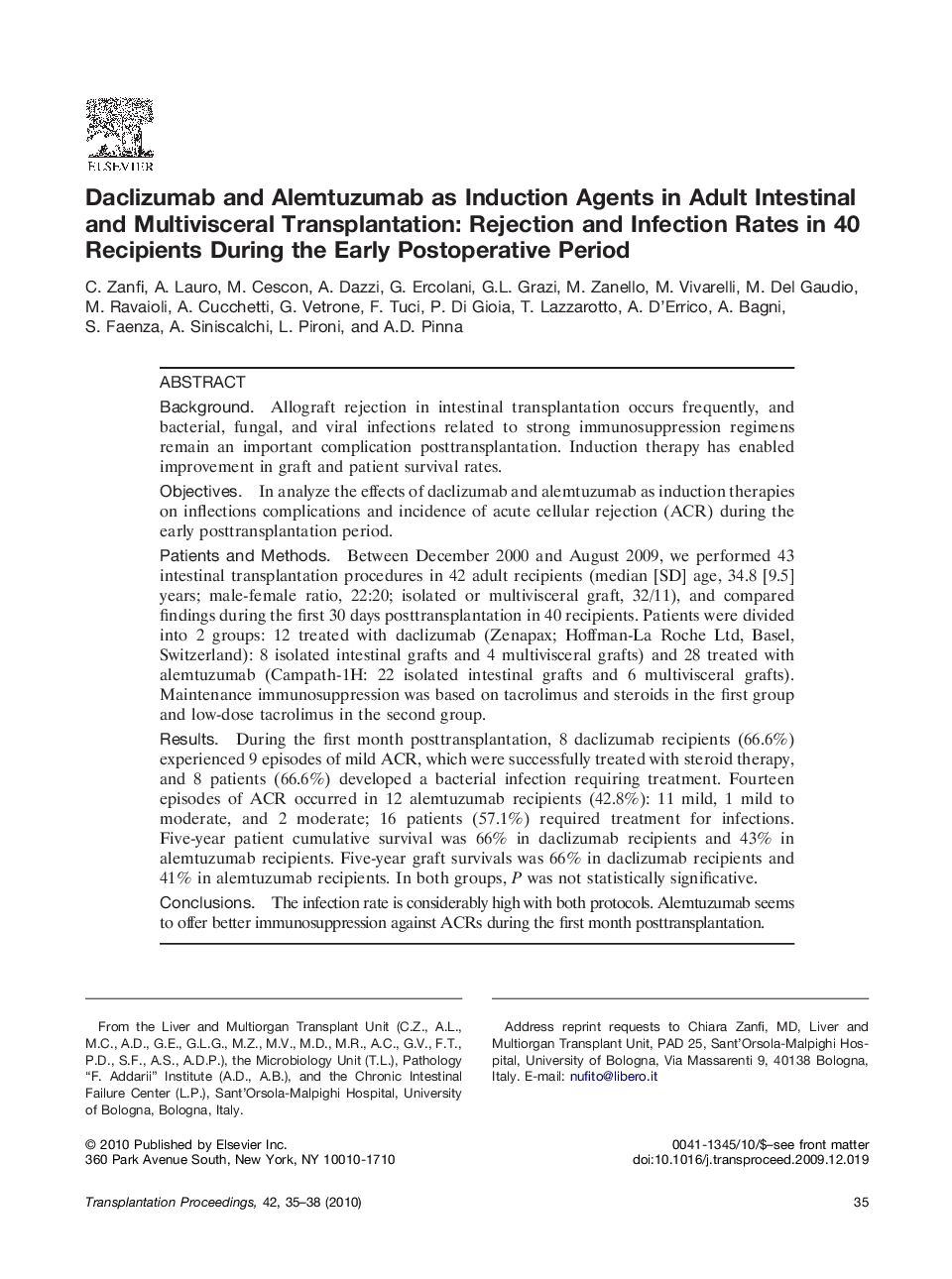| Article ID | Journal | Published Year | Pages | File Type |
|---|---|---|---|---|
| 4260815 | Transplantation Proceedings | 2010 | 4 Pages |
BackgroundAllograft rejection in intestinal transplantation occurs frequently, and bacterial, fungal, and viral infections related to strong immunosuppression regimens remain an important complication posttransplantation. Induction therapy has enabled improvement in graft and patient survival rates.ObjectivesIn analyze the effects of daclizumab and alemtuzumab as induction therapies on inflections complications and incidence of acute cellular rejection (ACR) during the early posttransplantation period.Patients and MethodsBetween December 2000 and August 2009, we performed 43 intestinal transplantation procedures in 42 adult recipients (median [SD] age, 34.8 [9.5] years; male-female ratio, 22:20; isolated or multivisceral graft, 32/11), and compared findings during the first 30 days posttransplantation in 40 recipients. Patients were divided into 2 groups: 12 treated with daclizumab (Zenapax; Hoffman-La Roche Ltd, Basel, Switzerland): 8 isolated intestinal grafts and 4 multivisceral grafts) and 28 treated with alemtuzumab (Campath-1H: 22 isolated intestinal grafts and 6 multivisceral grafts). Maintenance immunosuppression was based on tacrolimus and steroids in the first group and low-dose tacrolimus in the second group.ResultsDuring the first month posttransplantation, 8 daclizumab recipients (66.6%) experienced 9 episodes of mild ACR, which were successfully treated with steroid therapy, and 8 patients (66.6%) developed a bacterial infection requiring treatment. Fourteen episodes of ACR occurred in 12 alemtuzumab recipients (42.8%): 11 mild, 1 mild to moderate, and 2 moderate; 16 patients (57.1%) required treatment for infections. Five-year patient cumulative survival was 66% in daclizumab recipients and 43% in alemtuzumab recipients. Five-year graft survivals was 66% in daclizumab recipients and 41% in alemtuzumab recipients. In both groups, P was not statistically significative.ConclusionsThe infection rate is considerably high with both protocols. Alemtuzumab seems to offer better immunosuppression against ACRs during the first month posttransplantation.
